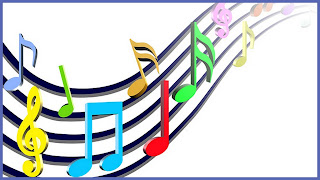Ever wondered why you relate so strongly to some songs? Why there are days you simply cannot go without listening to music?
Why some songs bring back incredibly vivid memories? And why your tastes in musical genres varies so much? Hopefully you may find some answers here. I have included the examples of Tony Bennett and Frank Sinatra as mentioned in the clip.
The vocabulary and notes are common to all genres. There are generational differences, of course! Music can be happy or sad and may affect us in different ways, depending on our circumstances.
From the clip on You Tube.
"You know the feeling. You hear "that song" and it evokes a certain emotion or memory.
Cognitive psychologist Daniel Levitin sits down with Steve Paikin to explain how music moves us."
Daniel Levitin is the author of This Is Your Brain on Music and The World in Six Songs, and professor of psychology and music at McGill University of Montreal.
Dr. Levitin said that music activates neurons in more regions of the brain than almost anything else scientists know of.
He said that music causes the release of neurochemicals in our brains.
He told EarthSky:
We know that the brain is musical because there are specific neural circuits. And by that, I mean specific regions of the brain dedicated to processing music and nothing else. Our brain structure changes every time we learn something new.Dr. Levitin said that we are all musical experts, because we know the kind of music that resonates with us on an emotional level.
For example, listening to music you like causes the release of dopamine, the so called “feel good” hormone, and on the opposite side, listening to music you hate, will activate the amygdala, the brain’s fight or flight center, and that will cause a release of adrenaline.
We see this, in fact, in the way people incorporate music into their lives. A lot of people use a certain kind of music to get going in the morning, to get out of bed, to get them through an exercise workout, to calm themselves down at the end of the day. We’re using music in the same way we use drugs, really, for emotional regulation, partly because of the way it can modulate our neurochemistry, affecting our moods.Dr. Levitin said humans are a musical species and that our brains co-evolved with music as a means of communicating with each other. He said:
I think that for many of us, music is an alternative way of communicating. There are things that music can do for us that language can’t. I know for example, if you’re feeling really uptight or stressed, you’ve had a bad day, you had a fight with somebody – words sometimes aren’t as soothing as the right piece of music. As another example, look at love songs – I think the reason they exist is that they’re able to communicate in an emotional way that words alone just can’t.
This story with many thanks to Earth Sky
Picture Credit: University of Toronto which has an interesting article on how music-based cartoons may help children.
If You Want To Accelerate Brain Development In Children, Teach Them Music
